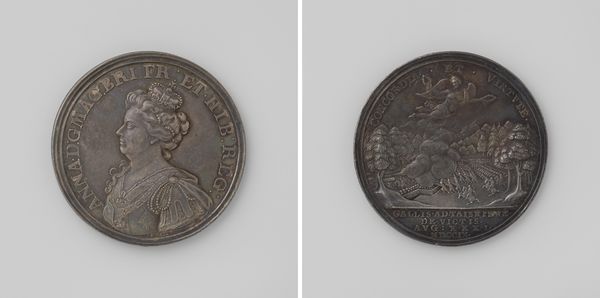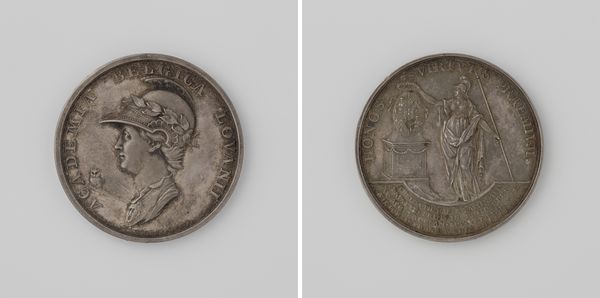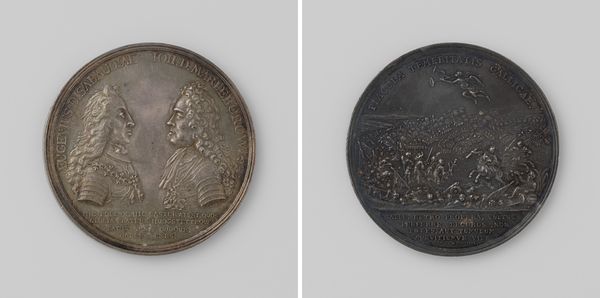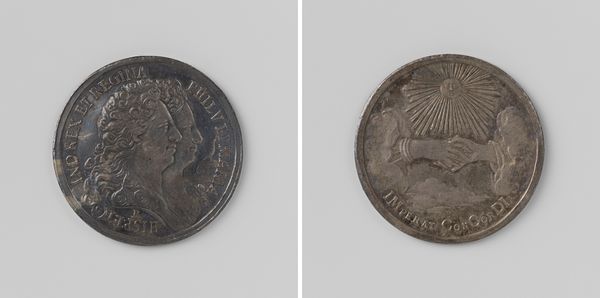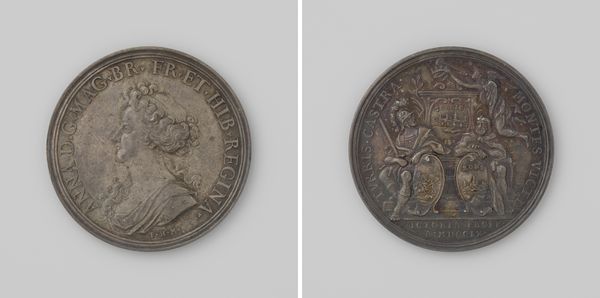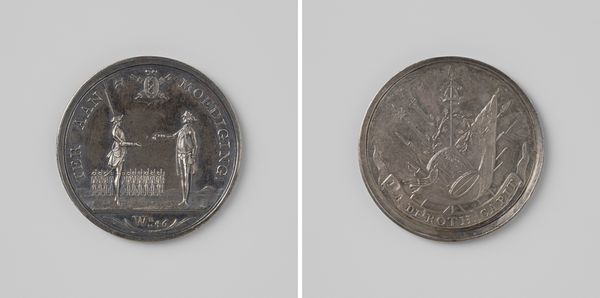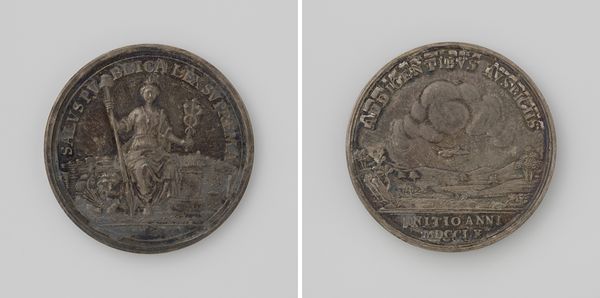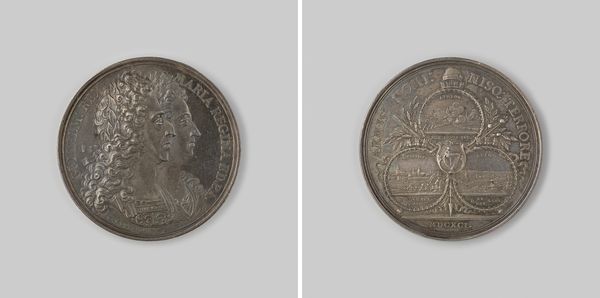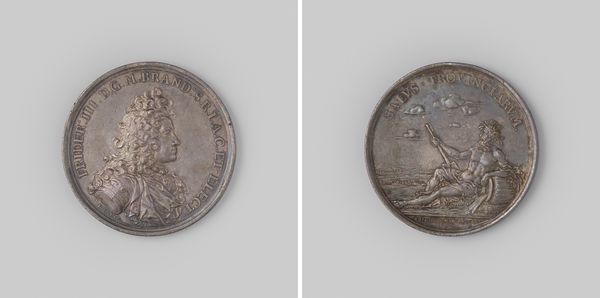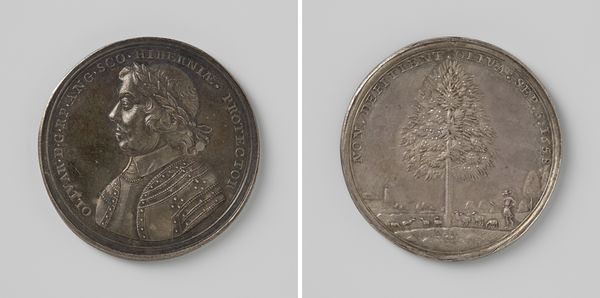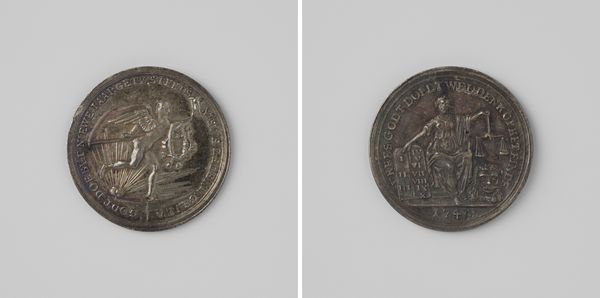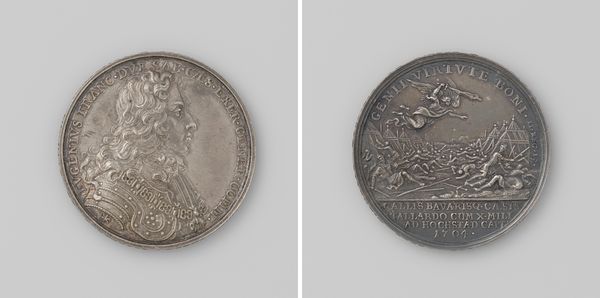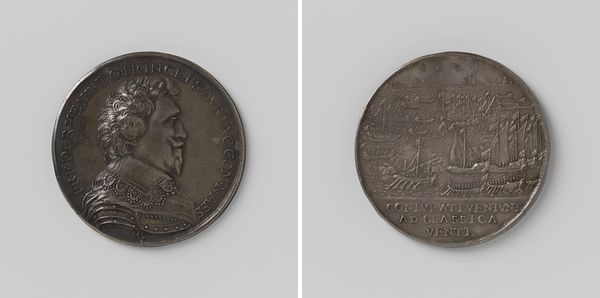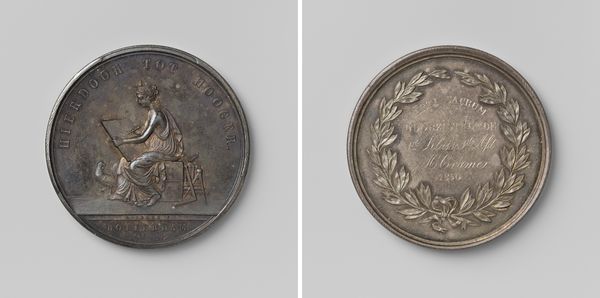
metal, sculpture
#
portrait
#
baroque
#
metal
#
sculpture
#
sculpture
#
history-painting
Dimensions: diameter 4.4 cm, weight 33.39 gr
Copyright: Rijks Museum: Open Domain
Editor: This is a medal from 1707 commemorating "Johann Willem, hertog van Saksen-Gotha sneuvelt bij Toulon," made from metal by Johann Christian Koch. It feels very stark. What can you tell me about how its design conveys its historical context? Curator: From a formalist perspective, note how the obverse side presents the Duke in profile, his elaborate wig meticulously rendered. The circular inscription, "JOH. WILHELM. DVX. SAX. I. CM. AETW.," tightly frames the portrait, compressing the pictorial space. And then, contrast that with the reverse. Do you notice the lone tree emerging from the ground? Editor: Yes, the reverse shows a lone tree or plant of some sort and then some Latin text in an arc above it. It gives the coin an interesting weight, like a philosophical statement about resilience, even within an event that commemorates death. Curator: Precisely. Consider how the inscription, "NON LONGA AT ALTUM," intersects the tree, integrating word and image. The stark rendering of the scene, devoid of any human presence aside from symbolic language, amplifies the symbolic significance of that singular sprouting figure, doesn't it? Its survival—juxtaposed against implied mortality— becomes visually poignant, a visual play in textures that also highlights metal as a material and art form of the baroque. Editor: So it is the bareness and use of simple shapes and composition, instead of detailed scenes, that makes the piece so expressive. I'm so used to more visually rich history paintings! Curator: It's the economy of form, the visual relationships, which serve to augment this Baroque coin's message; it is not attempting illusionism, but to invoke through its material itself and its own structured semiotics a sense of stark reflection. And from the texture of the metal itself comes the reflection. Editor: Thanks, I’ll definitely look at metalwork differently from now on. I had thought of it as being illustrative, and now I realize it's expressive in form alone.
Comments
No comments
Be the first to comment and join the conversation on the ultimate creative platform.
